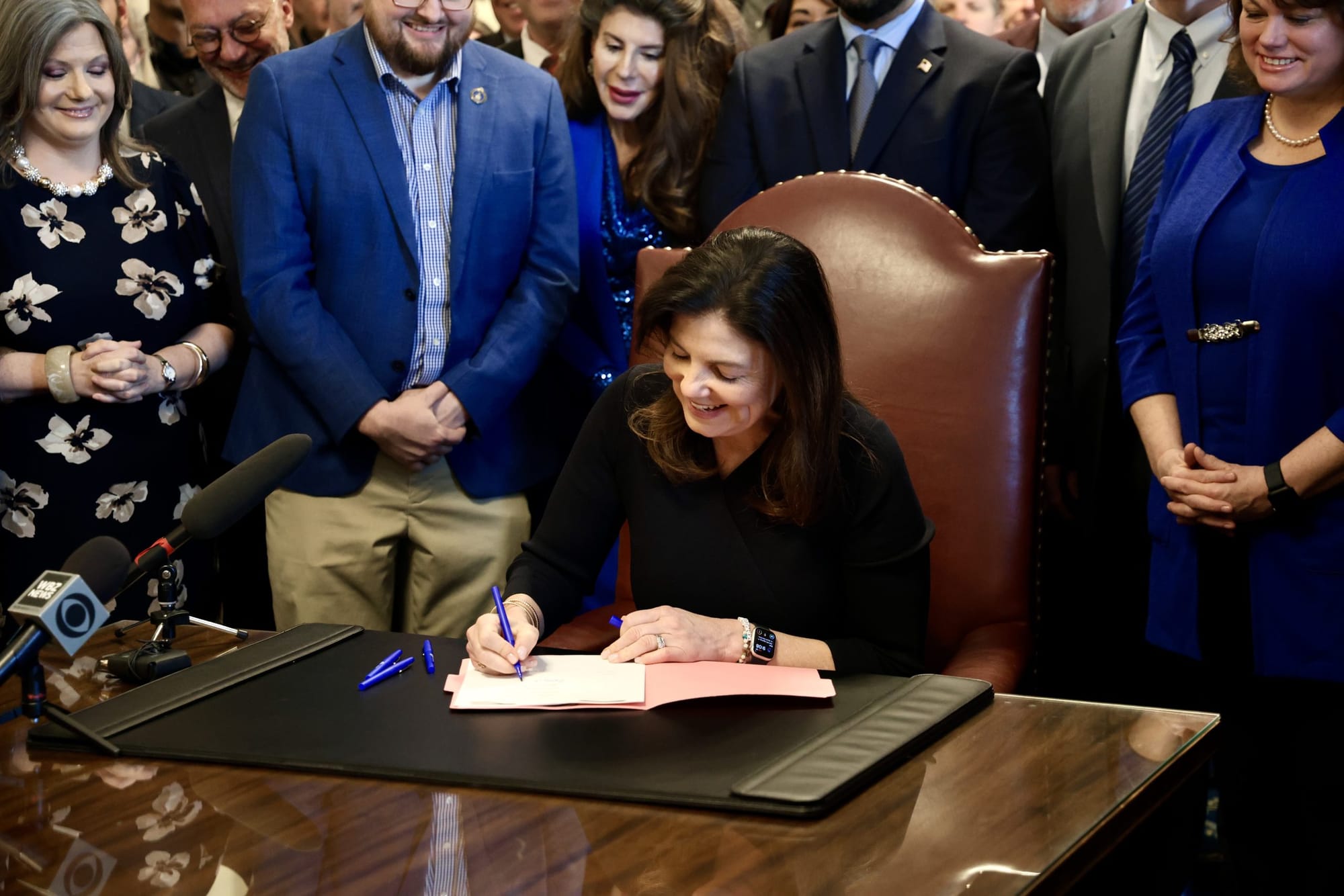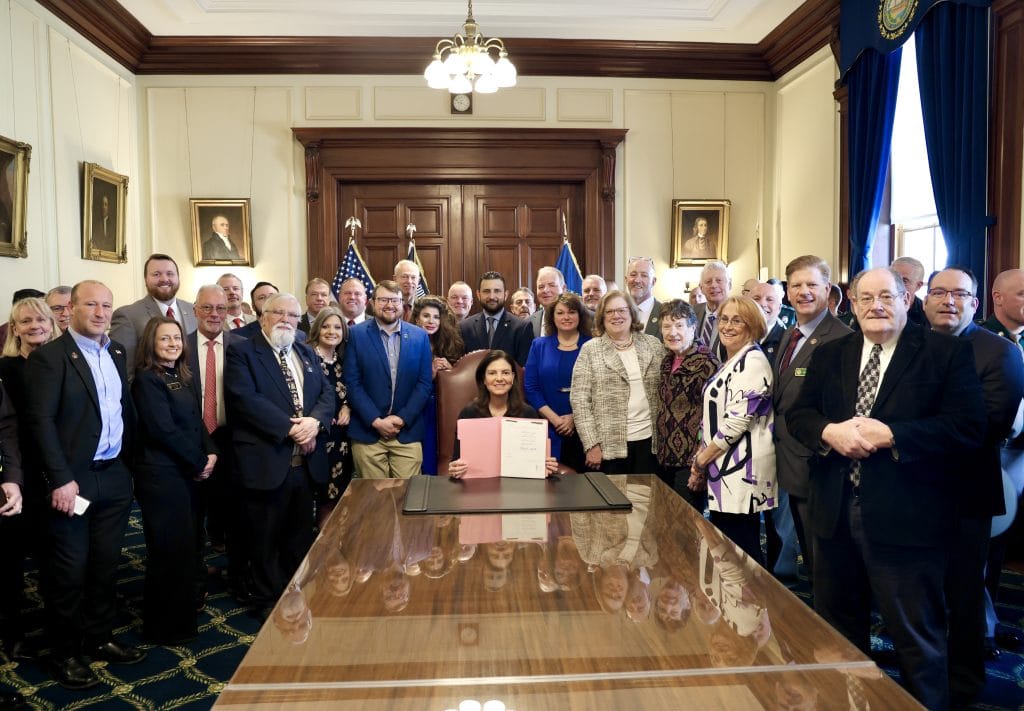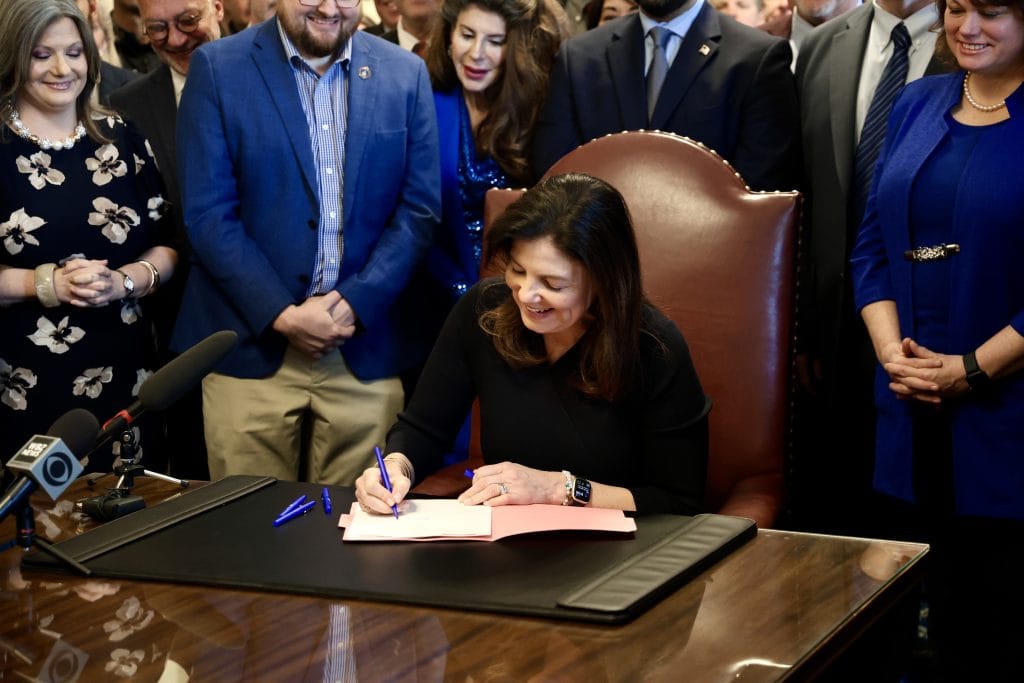Mayor Ruais joins governor and several city legislators in Concord for signing of bail reform bill
In the final wording of the bill, the magistrates that once provided an alternative to bail commissioners or judges on bail hearings will no longer be part of the bail process. Those arrested without a warrant will now be held up to 36 hours before a bail hearing excluding weekends and holidays.


MANCHESTER, NH – On Tuesday morning, Manchester Mayor Jay Ruais issued a statement praising the passage of HB 592, a bill seeking to rollback changes to bail laws passed in recent years.
In the final wording of the bill, the magistrates that once provided an alternative to bail commissioners or judges on bail hearings will no longer be part of the bail process. Those arrested without a warrant will now be held up to 36 hours before a bail hearing excluding weekends and holidays.
New rules for pre-trial conduct, such as arrest for a new crime while out on bail, have been added in the language for the final bill. Bail can also be revoked for circumstances where the defendant may be a danger to themselves of others including violating protective orders, threats toward others, cruelty toward animals, and acute depression, among others criteria.
Bail reform has been one of the key policy initiatives of Ruais’ term, beginning with a press conference in Concord one day after his inauguration, following numerous incidents where individuals released on personal recognizance bail committed additional alleged crimes. One of those incidents recently occurred several hundred feet away from City Hall.
“We are returning to a strong bail system, where public safety comes first and the revolving door for violent and repeat offenders has been slammed shut,” said Ruais. “Our previous bail system was seriously flawed, putting our citizens, businesses, visitors, and law enforcement in danger. Repeat and violent offenders gaining pre-trial release on our streets has been a serious issue for every municipality across our state.”

Ruais praised New Hampshire Governor Kelly Ayotte for her efforts in support of the bill, with Ayotte. Like Ruais, Ayotte also released a statement that read:
“The broken bail law was a failed social experiment that created a revolving door for violent criminals in our state. Today, we slammed that revolving door shut,” she said. “I was proud to sign this bill into law alongside leaders from both parties and members of our law enforcement community. I thank everyone who helped get this across the finish line, and I look forward to continuing to work together to keep our state the safest in the nation.”
All five of the bill’s sponsors are Republican and three of them represent parts of Manchester: Brian Cole (Ward 7), Steven Kesselring (Ward 12) and Jonathan Morton (Wards 6,8 and 9). Ross Berry, who once was a state representative from Manchester and now lives in Weare, was also a sponsor on the bill.
“Republicans will not tolerate a revolving door of violent offenders being allowed to walk the streets and put our communities at risk. I applaud Governor Ayotte for signing this comprehensive package of fixes to New Hampshire’s bail system into law,” said Berry.
The American Civil Liberties Union of New Hampshire spoke in opposition to the bill’s passage into law, releasing the following statement:
“Make no mistake: this bill is anti-liberty, anti-due process, and will result in thousands of non-dangerous Granite Staters being jailed - all at high taxpayer expense and despite being presumed innocent in the eyes of the law. HB 592 will not make the Granite State safer. It is deeply disturbing that politicians on both sides of the aisle are willing to cast aside the civil liberties of their constituents and overlook the actual facts in an attempt to score political points,” said ACLU NH Executive Director Devon Chaffee. “Research shows that pretrial incarceration leads to job loss, breakdowns of families, and even severe health issues and death. Under this bill, we will return to an unjust system where Granite Staters will be held in jail for days, weeks, or even months for no reason other than they cannot afford bail. They’ll also be denied freedom using mere probable cause, and experience much longer wait times behind bars for a bail hearing.”
The House concurred 204-175 with 9-8 ought-to-pass with amendments (OTPA) committee recommendation. In the Senate, the bill moved forward 23-0 after 5-0 after an OTPA recommendation.
This law will go into effect on September 21.





